Innovation
Award
Infertility: The other face of motherhood
published by Diari ARA, Spain
“I have even thought: What if I don’t want it enough?”
Photography: Francesc Melcion, Sara Cabarrocas
INFERTILITY: “Inability to carry a pregnancy to term despite becoming pregnant.” Although they are often used as synonyms, sterility and infertility are not medically the same thing. It is yet another example of the lack of knowledge about women’s reproductive health. Fertility is often taken for granted, until obstacles arise. And in addition to the emotional and financial cost of infertility, there are other burdens: the social pressure to have children and the secrecy with which it is borne. Six women and one man talk candidly about the subject and claim infertility as a part of motherhood, even when at the end of the journey the longed-for ‘miracle baby’ does not arrive.
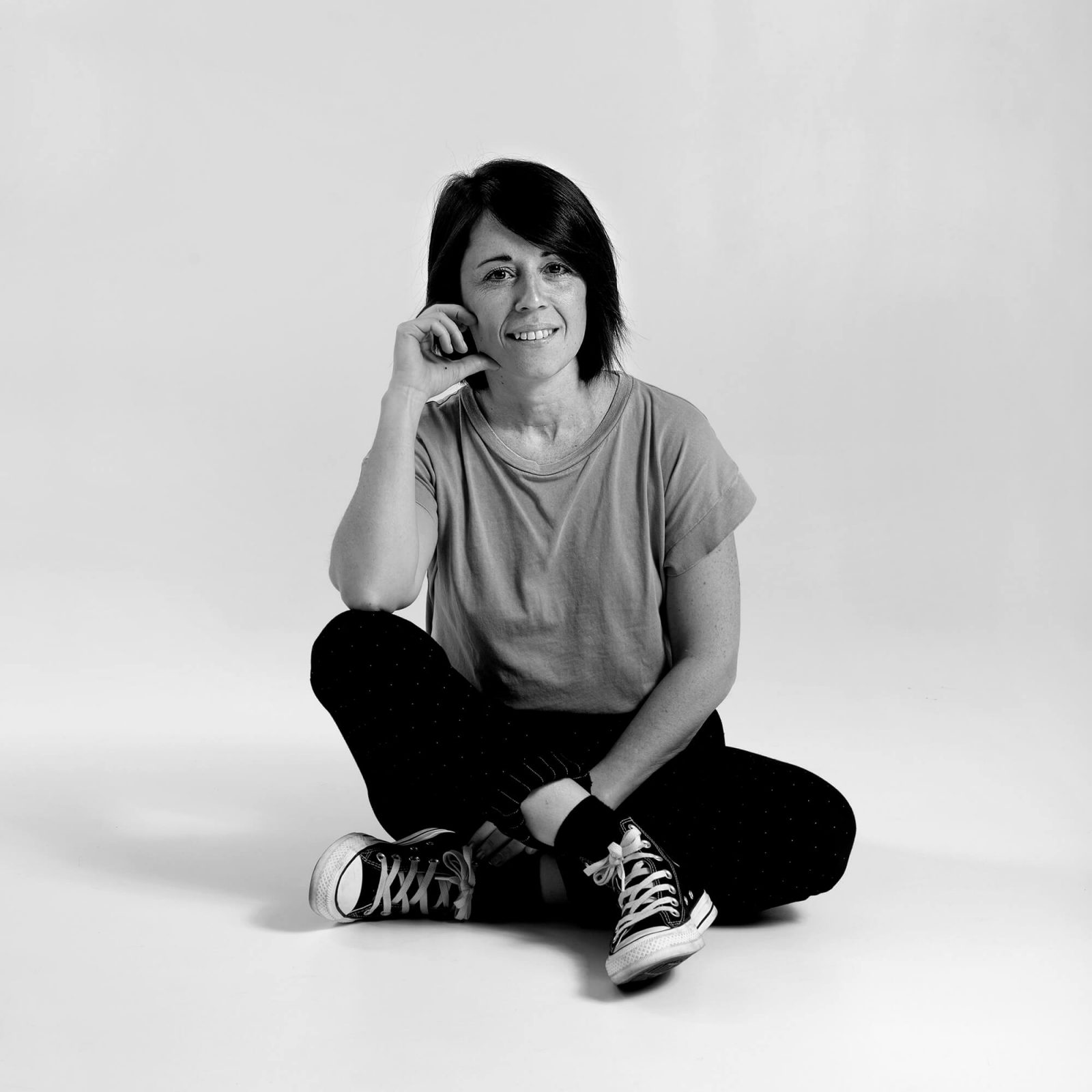
“The day I decided it was over, I felt liberated.”
Míriam Aguilar
42 years old
Accessory designer
“The first few years I didn’t talk about it because I was ashamed. I felt bad that I was the only woman around me who was not able to get pregnant or have a child. As if it was my fault. Sometimes I had even thought: Supposing I didn’t want it enough? What if I didn’t really want to be a mother? I felt that my body was not the same as other women’s bodies. This is wrong because infertility is natural, it’s also a part of motherhood.”
Today’s Míriam is not the same as Míriam ten years ago, the one who was ashamed to talk about her infertility problems. Today she is a woman who calls a spade a spade. Tired of the ‘miracle baby’ story, of women who after years of dealing with infertility and undergoing multiple assisted reproduction treatments end up having that much desired child, Míriam lays claim to another character: that of the childless woman. Because infertility, she says, is also that, and does not always end up with a baby in one’s arms. Four little dots tattooed on the back of her arm, one for each child that was not born, are the graphic reminder of the four miscarriages she has suffered. Her limit was when it came to assisted reproduction. “We didn’t want to do that because it seemed like a business, because I thought it was fighting against what my body was telling me, because it was a lot of money to have a child and also because of the pressure if it went wrong. But when the time came and we realised that we wouldn’t have a child naturally, I thought that maybe I was putting up a barrier to getting pregnant by using another method that was neither better nor worse”. Finally, she and her partner made an exception and tried oocyte donation, which did not work. And after ten years living with infertility, they decided to stop trying. She was 41 years old. She was one year shy of 42, the age she had set herself as the limit for becoming a mother.
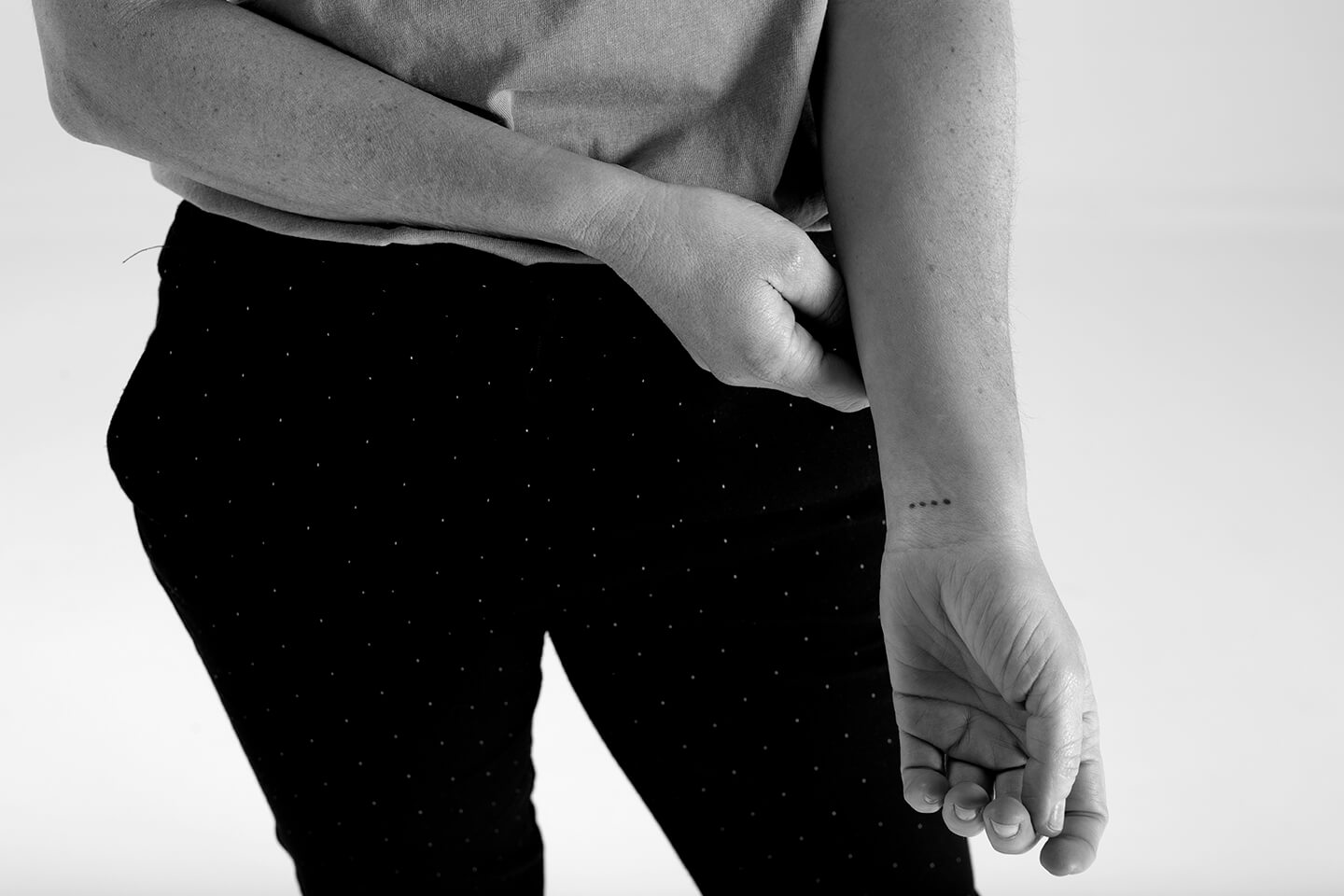
1. When to say enough is enough
Míriam Aguilar “Setting yourself a limit is essential because society pushes you to keep on trying: ‘You’ll see that it will work out next time!’ And that’s pressure. Why is it that women who keep trying are told that they are very brave? On the other hand, those of us who decide to stop are seen as the poor ones who didn’t make it. How long should I keep trying? Maybe in the end I would end up having a child and I realise that I’m no happier than before.” “The day we decided it was over, I felt liberated. I had done what I could and what my body couldn’t do, I had to accept.”
15-20% of couples of childbearing age suffer from fertility problems
Ariana Ruglio “Where you draw the line is a very personal question. I already have a daughter. Maybe if I didn’t have any children at all, I would keep trying. Or maybe not. I think you have to draw the line when you can’t bear it anymore. Stop and take a look at your life. The idea of living through all this without a break horrifies me. It’s also brave to say: “That’s it”. Because life is much more than that. And our limit was also my will to do more than being a mother”.
Sandra Arolas “This really was the last attempt. It sounds strange because we persisted for a long time, but it was also the last one for economic reasons. Because it’s not free. And then, they are very strong hormone treatments and I can’t spend my whole life taking hormones. We went to the doctor with a super-fat folder and we said: “This is the folder of the treatments I’ve had, this is all we have done and this is the last thing we will do.”
Ona Campillo “I won’t try it forever. The limit exists because we are aware that we have been trying for two years, we have had four miscarriages, and now we are doing in vitro fertilisation and the money is what it is. This will be quite a conditioning factor.”
Sandra Albert “If I had won the lottery I would have kept trying but it was a lot of money and we decided not to continue for financial reasons.”
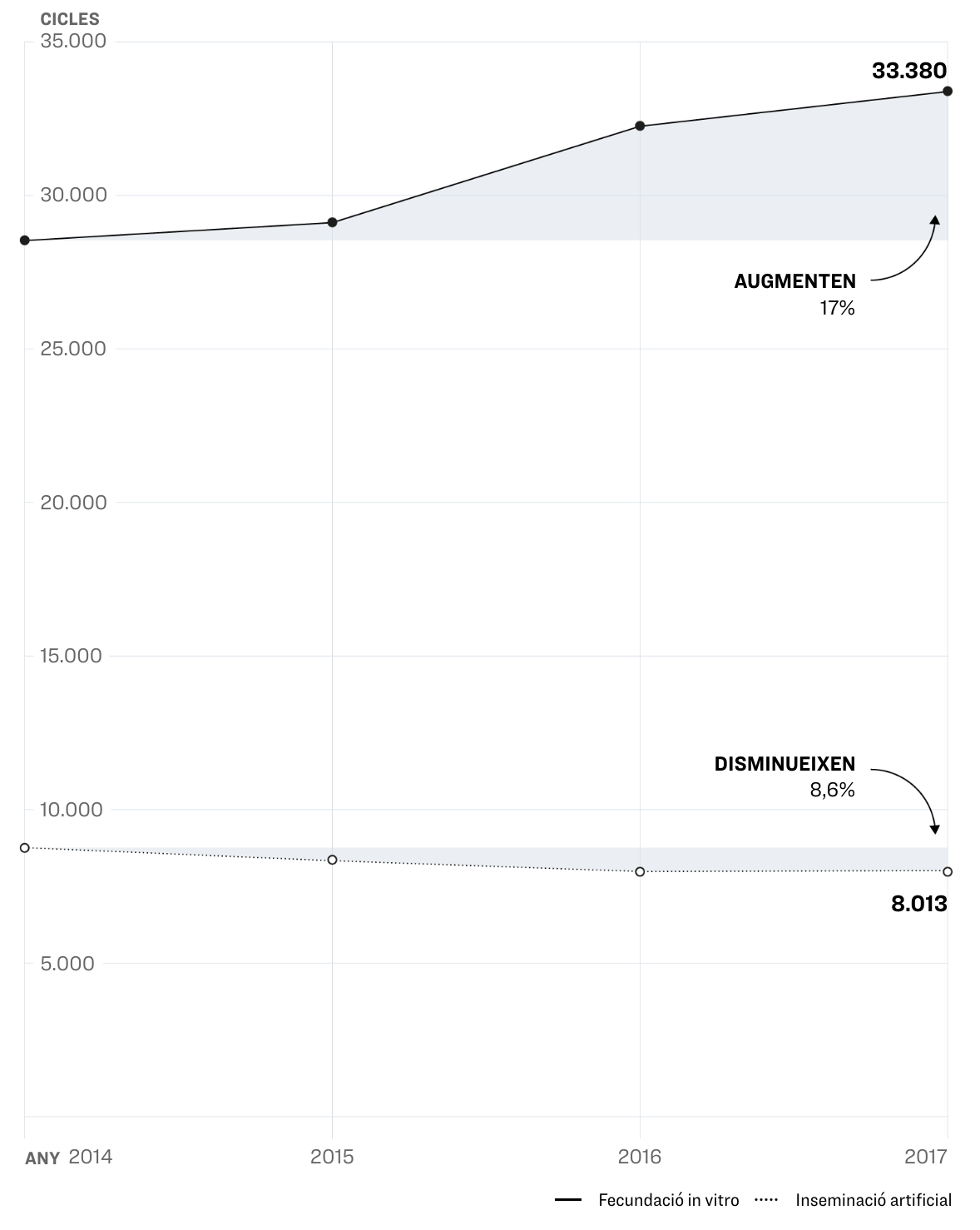
In vitro fertilisation and artificial insemination cycles initiated
cicles: cycles
augmenten: increase
disminueixen: decrease
any: years
fecundació in vitro: in vitro fertilisation
inseminació artificial: artificial insemination
Source: CATALUNYA / SEF 2017
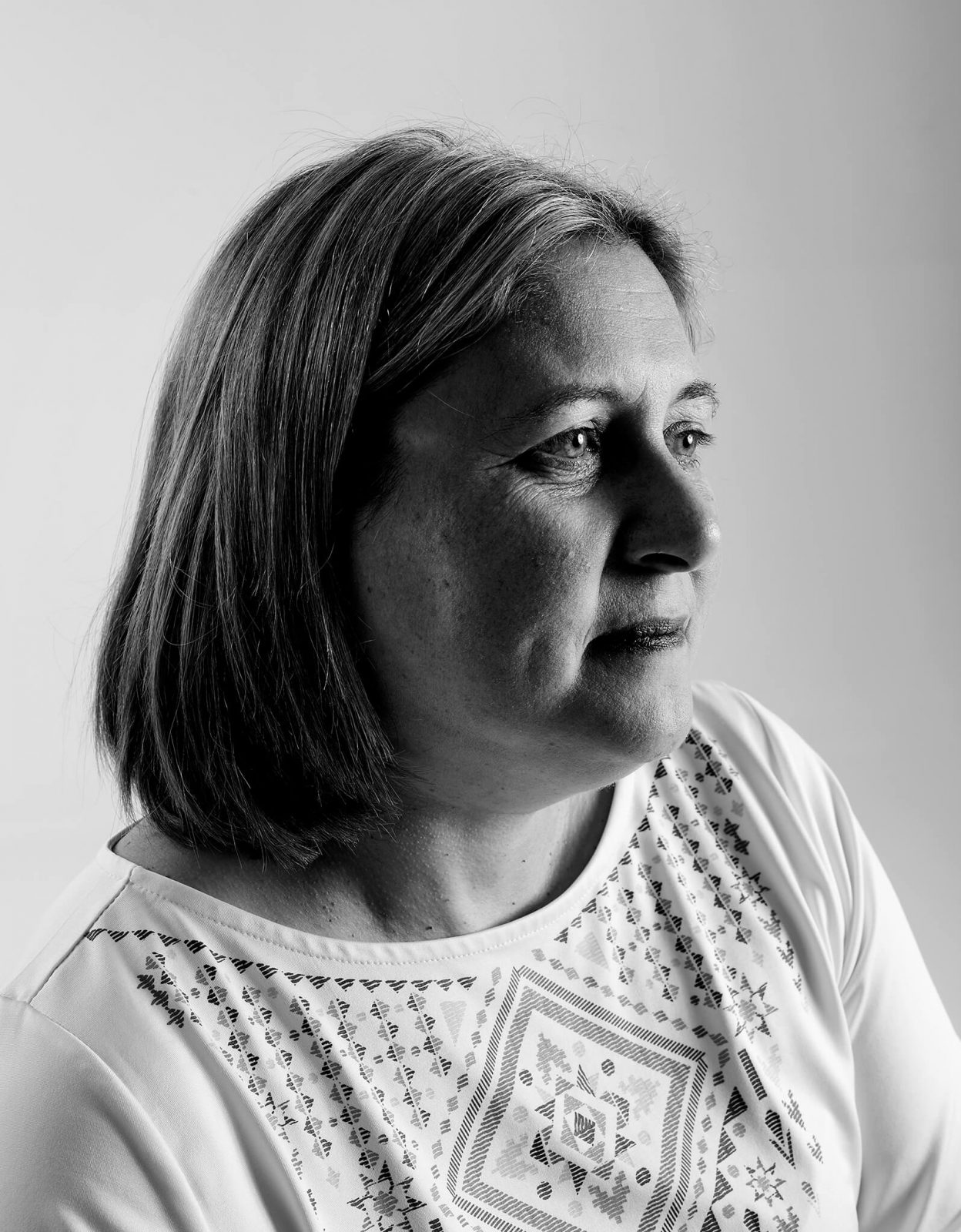
“How many abortions do I have to have to be lucky?”
Sandra Albert
48 years old
Unemployed clerical assistant
“They told us: ‘Keep trying and see if you are lucky’. How many miscarriages do I have to have before I’m lucky? Every time you have one, physically it’s wear and tear, and psychologically it’s also very tough. For me it was a terrible disappointment. It was a failure. I kept weeping and my partner would tell me: ‘Don’t cry.’ I needed to cry, I had the right to be angry and I had to mourn. And this also caused a lot of tension.
After three early abortions, an ectopic pregnancy and a medical pilgrimage, Sandra and her husband realised that their pregnancies would never be viable because of a genetic problem on his part. Knowing the cause was a relief, especially to rid their minds of the guilt. They turned to assisted reproduction and after three unsuccessful in vitro fertilisations, which they did not explain to those around them, Sandra Albert accepted that she would never have children. Along the way, the couple’s relationship was exhausted and she finally recovered from the emotional and physical exhaustion of so many years of frustrated attempts. After having kept it all to herself, finding a group of women who had gone through the same thing helped her to feel understood and to be of help to other women.
2. Relationships and sex
Sandra Albert “We each experienced it each in our own way. He withdrew into his world and I withdrew into mine. We drifted apart. We couldn’t find a way to get through this together that would strengthen the relationship rather than weaken it. We ended up separated. And I think this was a very important reason because, in addition, he never wanted to consider adoption. I couldn’t conceive of my life without a child. And it was very difficult for me to see that he didn’t want to do anything about it”.
Míriam “It can’t be said that it has affected us negatively, there are things that sometimes unite. Maybe it did affect sex because having sex for many years at the moment of ovulation is awful! It’s very mechanical when a couple uses something that is so natural for a particular purpose. The point about sex is sex, not having children”.
Ona “I used to get anxious about timing because it’s frustrating to have to do so much planning [for sex]. At least when you start the IVF process it takes that pressure off.”
Ariana “My sexuality is not the same as it was five years ago, but neither is my idea of reproduction. Now I’m afraid of getting pregnant because I’ve been told that 99% of my pregnancies will end in miscarriage and so obviously you have to be ‘careful’ all the time.”
“We helped each other a lot. He wanted to have more children and, if it were up to him, we would have tried again, but I didn’t want to. You have to talk a lot to each other and be very honest about how you feel and what your fears are because it is easy for a couple to break up over all this business.”
Ona and Edu – O: “We have been lucky enough to understand each other and we have helped each other a lot and I think we have become strong as a couple, our misfortune has brought us together.”
– E: “Sometimes you don’t know if you are supportive in the right way. But you try to be there for her, to understand her. And, obviously, you don’t have to be strong all the time. All this has also helped us to understand that there are times when you have to reach out to each other. There are days when I’m very negative and there are others when she is. And the other way around.”
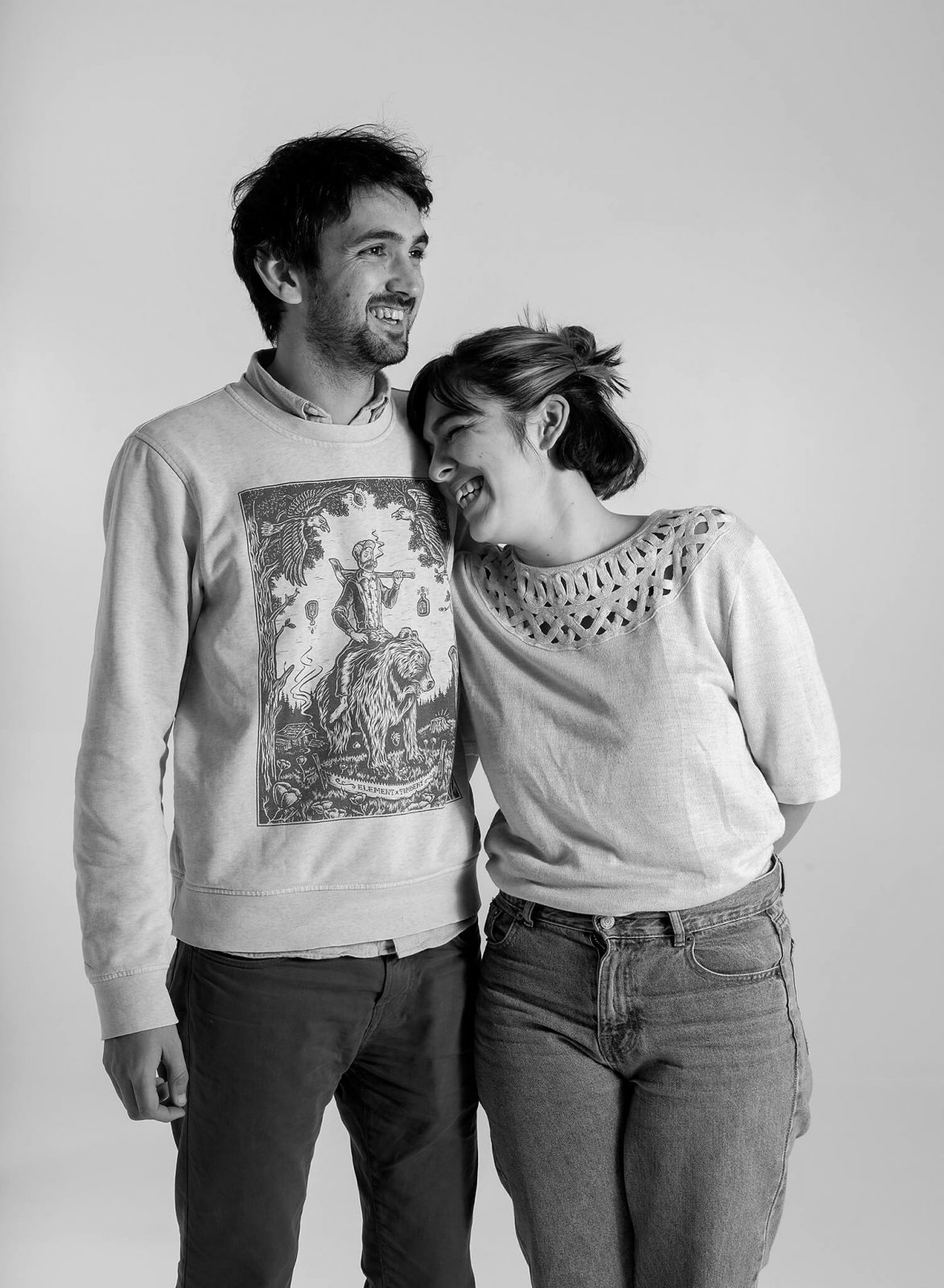
“We see pregnancies all around us and if we said it doesn’t hurt, it would be a lie.”
Ona Campillo and Eduard Pi
31 and 32 years old
Communication technicians
“Right now we have three or four pregnancies around us and if we said it doesn’t hurt, that would be a lie. You end up learning to accept it, because obviously it makes you happy, they’re your friends after all. But at the same time, you think: why is this happening to me? But eventually you accept it. No matter how long it goes on, it won’t stop affecting us. You have to accept that you will get angry. Grief and anger have to come out.”
Three years ago they started trying for their first pregnancy. They thought it would be “quick and easy,” as they had seen in TV series and films. A longer than usual menstrual period prompted them to consult a doctor, who confirmed that she had become pregnant… and lost it. During the following months, the Predictor gave them three more positive results that either ended in an abortion or ectopic pregnancy. The most critical moment came when Ona, with heavy bleeding, underwent emergency surgery for a perforation of her Fallopian tube. “At that moment you don’t worry about whether you will be a father or not, because you could be left without your partner,” says Edu. Now they know that they can no longer try to get pregnant naturally. They have ended up in the emergency room too many times. A positive pregnancy test, which for many is synonymous with joy, for them “is panic”. According to the doctors, theirs is a “very clear” infertility profile and they are on the waiting list for in vitro fertilisation with the public health system. At the same time, they are also beginning the process through the private sector. They are now in the middle of the process. We interviewed them a few days before the transfer of the only viable embryo obtained in their first in vitro fertilisation, which cost them around 10,000 euros. They are living it, they say, “with the handbrake on.”
3. Social pressure
Ona “It’s a hard time, it shakes you up emotionally and you have moments when you regret it, telling yourself that it’s your fault. You see friends getting pregnant when you’ve been trying for it for two and a half years. And then people tell you things like: ‘Switch off and you’ll see, you’ll get pregnant. You just have to stop thinking about it.’”
Sandra Albert “We were constantly being asked: ‘So when will the children be coming along then?’ And when you have problems, that’s complicated. Every couple knows their own tempo and their own things. These are questions that shouldn’t be asked. If a couple has been together for a long time and they don’t have children, it must be because they don’t want to or because they can’t.”
One in four women born in the second half of the 1970s will not become a mother, not because they don’t want to but because they cannot.
Míriam “There was a moment when I asked myself: ‘If I didn’t feel this pressure, would I continue?’ You ask yourself if you are doing all this because you want to be a mother or because you need to be a mother to fit into the parameters of how society is set up. I understood that I wanted to be a mother, but it was also true that I felt a lot of pressure.”
Glòria Labay “We live in a pronatalist society yet me and my partner are also a family, even though we don’t have children together.”
Ariana “Motherhood, it seems, has got to be the most desired goal for a woman. It’s a patriarchal issue. A woman has to be a mother and it doesn’t matter what she has to do, what she has to go through, it doesn’t matter if your body is bloated with hormones and medication, it doesn’t matter if your children die during pregnancy, you have to try again and this is very much linked to this idea that being a woman means being a mother.”
4. Physical impact
Míriam “The losses were brutal and the first miscarriage was the most horrible. At that moment I thought: ‘What is this? What is happening? Nobody prepares you for something like that and I went to A & E. At that moment I felt not mistreated, but not very well treated. You need empathetic people and I didn’t have that. I practically lost everything in the hospital bathroom. I had the feeling that something really horrible had happened to me and that they didn’t give it much importance.”
Sandra Albert “I finished the treatments fifteen or sixteen kilos heavier. With each pregnancy and each IVF I put on two kilos and they didn’t go away.”

Causes of infertility
40% female
20.3% male
20.8% mixed
12.8% unknown
5.9% DSP*
0.3% MIT**
* women without a male partner
** couples with communicable infectious diseases
Source: SEF 2017
5. …and emotional
Sandra Arolas “After the first three miscarriages I had a very bad time and, in fact, I even found it difficult to walk past a children’s playground. I don’t think it became an obsession, although it could have become one, because we did a lot of treatments in succession. And so there was a moment when we said enough was enough and we stopped for a year before we did the last IVF.”
“We would have preferred not to have to do any of this because the emotional, physical and financial cost would have been much less. But it was worth it. With these treatments you have to be very sure that you really want to do it. And we were clear about it and, even so, there are times when doubts arise.”
Glòria “I would get pregnant and then lose them at around 8 weeks. How many miscarriages can I take? It was doing me harm. And that’s why I gave it up. Assisted reproduction seems to be the magic solution but it’s far from that. The success rate of IVF is 30%, it is not a panacea, and there is a million-dollar business behind it.”
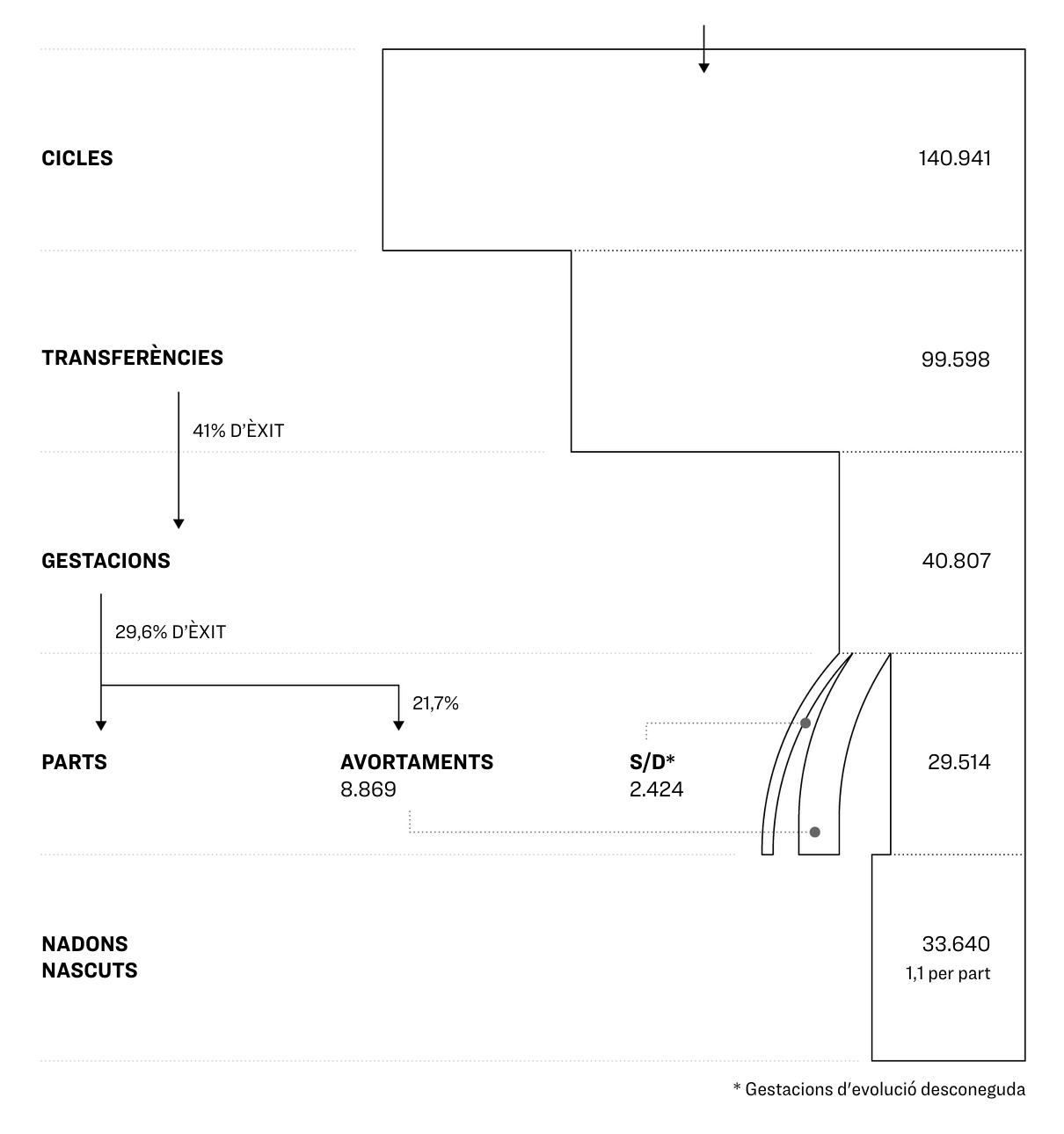
Successful IVF results
cicles: cycles
transferències: transfers
d’èxit: success
gestacions: pregnancies
parts: births
avortaments: miscarriages
s/d*: pregnancies with unknown outcome
nadons nascuts: babies born
per part: per birth
Source: ESPANYA / SEF 2017
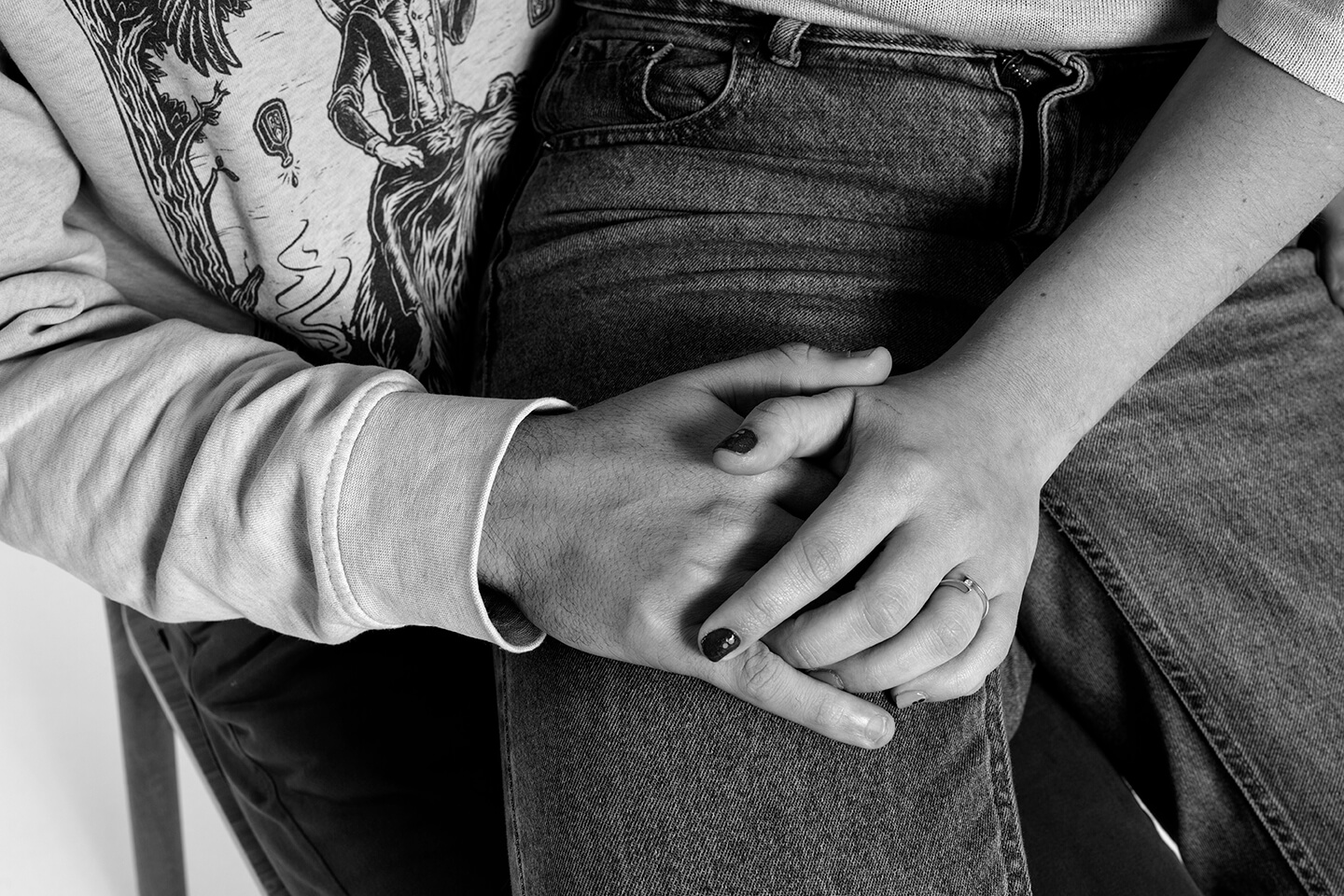
6. Economic cost
Sandra Albert “We spent a lot of money. It was all for the treatments, no travel or anything else, it was all to that end. We were working to pay for it.”
Sandra Arolas “We have taken out loans and we have stopped doing things like owning a house or changing cars. At the beginning we had savings and now we have loans – and two children, of course! And it’s fantastic that it’s like that. But we also have loans to pay back for treatments that didn’t work and that’s really awful because you can’t seem to forget what didn’t go well.”
From 3.500 to 8.000 euros The price of IVF excluding medication: (around 700 euros) plus additional techniques such as pre-implantation genetic diagnosis (4,000 euros)
Ona “We’ve been subsidised, we have paid half and our parents helped us with the other half, because, although they provide a lot of financing facilities, fertility is still a business. There are a lot of interests in play and no assurances you that you will get it right the first time.”
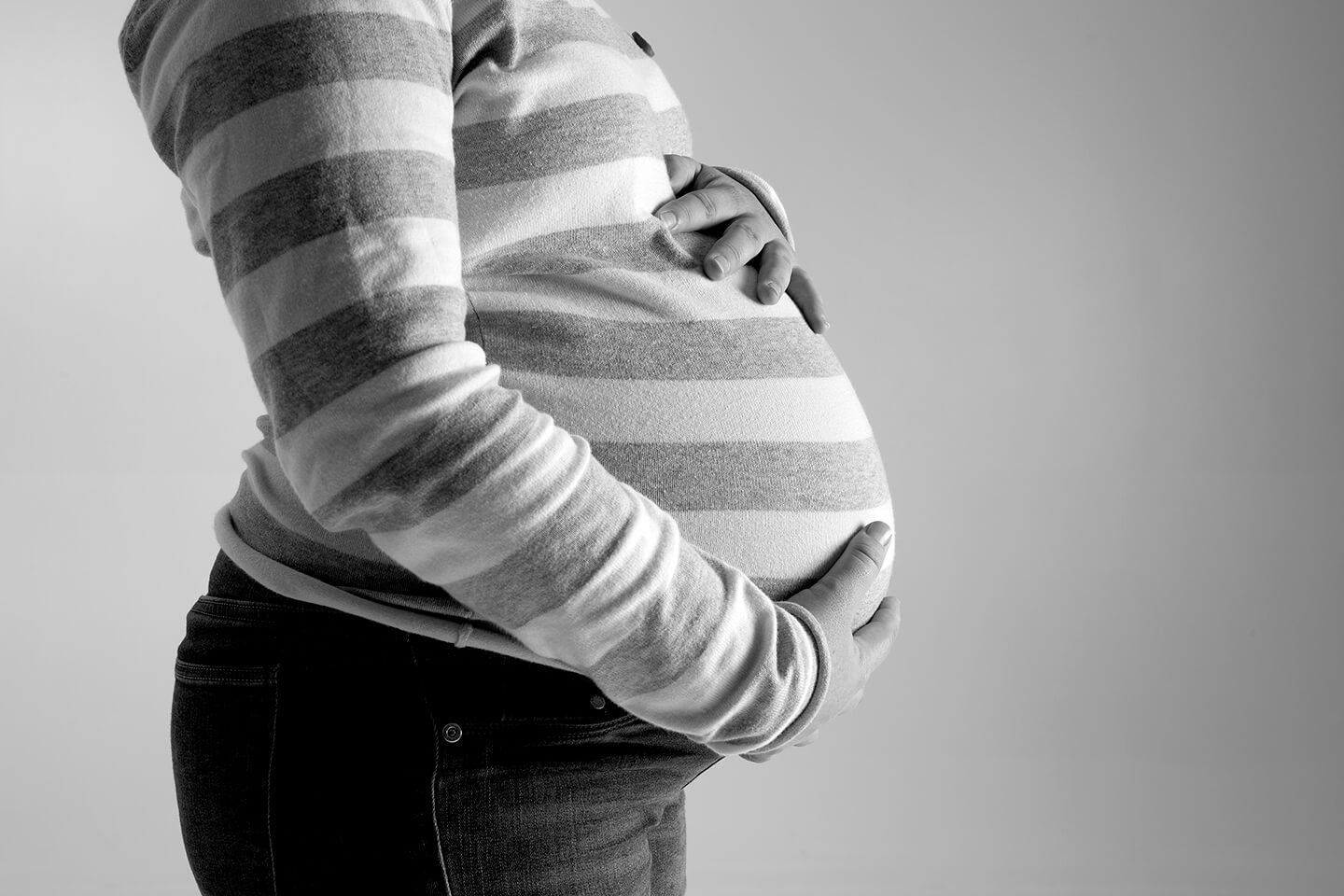
“I would like to not know which day my period is due.”
Sandra Arolas
37 years old
Photographer
“It got to a point where every month I was checking whether or not I was getting my period, if I had to get an injection, if I had to wear patches, if I had to go to the doctor… It was very tiresome. But even so, we were really looking forward to it, and that’s why we ended up going in for this whole series of treatments. I felt like I was out of sync. There are a lot of hormones and there comes a moment when you don’t know where you are.”
After six miscarriages, almost ten years of treatments, four in vitro fertilisations and twelve embryo transfers, Sandra Arolas is pregnant with her second child. The eldest child came five years ago, with the first IVF, after three natural pregnancies that ended in miscarriages. The cause of the infertility was a genetic problem of her partner. She is used to punctures, syringes and hormones. But before the last IVF, with which she finally achieved her longed-for second pregnancy, she needed to stop for a year and rest. “Because I also need to live without thinking about whether I have to take medication. I don’t want to know when my period is due. I want things to be normal.” Now she is just counting the days until she can hold her baby in her arms. This pregnancy has not been easy: “You see women who enjoy pregnancy a lot and you feel a bit envious. I can’t enjoy it because I’m under stress. It has been very difficult for me to create a bond. I’m used to statistics going against me. So what’s strange is that it’s going well,” she admits.
7. Expectation management
Sandra Arolas “We had always wanted to have children, several of them. I was convinced that I wanted three and that two of them should come along before I was 30. But then you realise that things are not panning out the way you thought. I thought the first would be along when I was 26, but I had to wait till I was 32. And the second one will come when I’m 38. You have certain expectations but then you realise that it’s uncontrollable, that it doesn’t depend on you.”
Average number of children per woman in Catalonia – 1.31; in the European Union it is 1.59
Ona “It was obvious to me that I would get pregnant. My mother got pregnant first thing – and with twins. I had no doubt that the same would happen to me too. Everyone would tell us that we were very young and that we would get pregnant for sure. And then you start to run into obstacles that don’t fit in with what you thought it would be like. And you shouldn’t judge couples who decide to become parents late, because it’s not just a fertility issue, we have a problem as a society. We are economically independent only later in life and when I was 24 or 25 I thought I was too young to have a child.”
Glòria “All your fertile years are dedicated to the world of work and then you find that when you want to have children, you can’t. I knew that from the age of 35 fertility begins to decline but you always think that statistics are one thing and individual cases are another. For me it was very important to go to university, for example. And this other thing I took for granted, but it turned out I shouldn’t have. You have to be more pro-active.”
Míriam “My generation grew up with the clear idea that we would have children. I didn’t imagine that all this could happen. You want to have children, so you have them. But my story is this one, not the one I thought it would be.”
8. Lack of information
Glòria “Women spend a good part of our lives worrying about not getting pregnant. I had taken contraceptives, I had had an IUD…. You’ve got it into your head that it’s very easy to get pregnant and that’s why you use so many contraceptive methods — but then it turns out that it’s not so easy. In the beginning you think you can easily leave it for a year without a problem.”
Ona “I have now learned how female reproduction works and I have come to know myself. We have no idea that at most you can get pregnant only two or three days a month. We have seen so many films and TV series in which you get pregnant at the first go…”
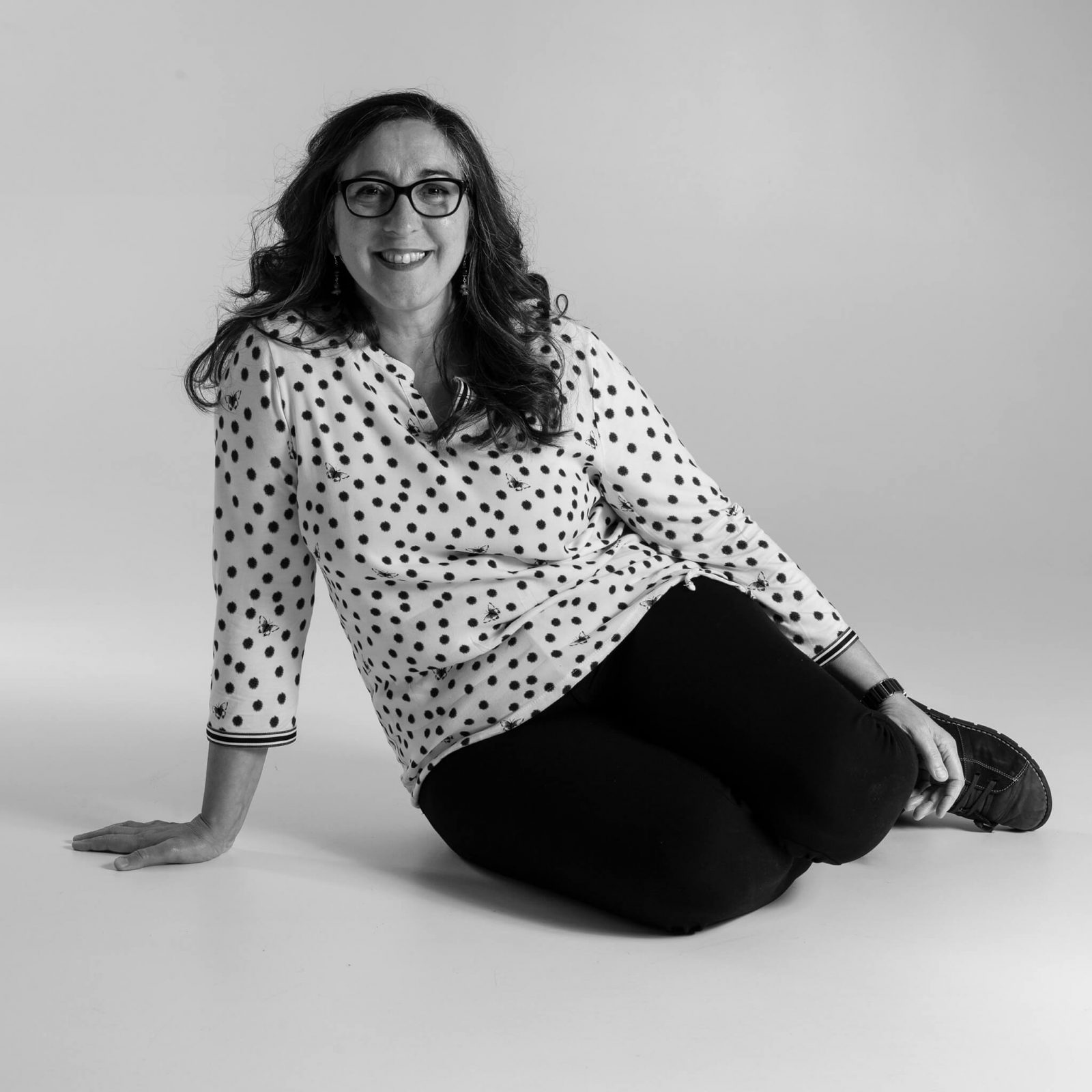
“And who cares about infertile women?”
Glòria Labay
54 years old
Midwife
“You will always find the ‘miracle baby’ story, but where are all the people who fail? Where are they? What do they do? There is nothing designed for people who fail. During the treatments there is psychological support, but then, when all is said and done, you’re a reproductive failure. That’s what they call it. I don’t feel it’s a failure. Sometimes words matter too.”
She had always wanted to be a mother, but none of her relationships had ever delivered the goods and at 38 she said to herself: “It’s now or never.” Two pregnancies with her then partner ended in miscarriage. The relationship ended and she turned to assisted reproduction on her own: inseminations, in vitro fertilisation and, finally, egg donation, the latter with her current partner. It did not work. Neither was the adoption process she started successful. And she decided that her relationship with motherhood, which has always “fascinated” her, would only be on a professional level. She is a midwife and has been delivering babies for more than 20 years. “I haven’t had to take sick leave because I couldn’t stand the profession, but I have had to take time off work at some special moments. I think that my experience has helped me to support women who have had a loss because not everything is rosy in motherhood”. Now she is starting up a public health project to help other women and couples to live with infertility and is also behind an initiative called La vida sin hijos (Life without children), in which she has brought together a community of women who are beginning to break taboos, and of which she is the cornerstone.
9. Still a taboo
Glòria “I didn’t want to take part in this taboo, in this plot of silence. It’s like when 50 years ago people used to say that someone who had cancer had a long illness. I don’t want euphemisms to be used to talk about infertility.
“I have simply come out of the closet. The trouble is that there are no standard benchmarks for childless women. There are always stereotypes such as the embittered woman or the stepmother. There are no women who are powerful in their own right. And the fact that many people decide to talk about this is what will break the taboo.”
Sandra Arolas “Many people asked me if we were going to have children. So I started to talk about it and, when I did, I met people who said to me: ‘Well, we had this other experience’. And in the end you find yourself alone in something that seems as if it’s happening only to you, when it turns out that actually it happens to many people. It is not true that there are few of us. It’s just that people don’t talk about it”.
Míriam “The feeling I had was that everyone got pregnant, those who could get pregnant naturally and also couples who had infertility problems. What’s going on? Why has it happened only to me? And I realised that no, that it is a lie. There are many women who either don’t get pregnant or get pregnant and miscarry. And why don’t people talk about that?”
“There is also no discussion of menstruation either. There is no discussion of the post-natal period, or the hardships of motherhood or breastfeeding. Nobody talks about anything that happens to women. And this is just one more thing that happens to us.”
Ariana “There is a huge taboo around reproductive health and around women’s mental health. Nobody tells you that one in four pregnancies doesn’t run to term. Nobody tells you that when your child dies inside you, you may still have to give birth to it. Nobody tells you because we don’t want to hear it. If men were in this position, would they talk more about it? There are things you can’t avoid, but you can give tools to the people who have to live through it.”
Glòria “It is very important to talk about it because many people suffer infertility in silence. But many issues that affect women are invisible and talking about it is talking about feminism.”
“If you are not fertile, it is as if you had a physical defect and this just doesn’t wash anymore. I think that if women are where we are today, it is because one day we wanted to be something more than just mothers. But patriarchy has laid down that the main role of women is to reproduce and, therefore, a woman who is not a mother does not fit in. What role does an adult woman have if she does not fulfil what is expected of her? That scuppers a lot of things for you, especially what you expected your life to be.”
Sandra Arolas “There is still a belief that if you can’t have children, you are useless. It seems that for people with a uterus it is obligatory to bring life into the world. And whether it is your own decision or because you can’t have them, the fact of not having children marks you out.”
Ona and Edu O: “We have been educated into thinking that our mission in life is to be mothers and when you don’t fulfil this objective, no matter how liberated a woman you are, you realise that you are just the same, still immersed in the patriarchy. And this is frustrating.”
E: “I have not questioned whether I am more or less of a man. For me it has nothing to do with it.”
Sandra Albert “When the doctor told us that the only option was with donor sperm, he said he didn’t want anyone to know. What does it matter whether it’s your blood or not?”
Míriam “I had no problem thinking that the eggs would not be mine. I didn’t care because, in fact, what I wanted was to have a child. I didn’t have that feeling of possession, that ‘it has to be mine’.”
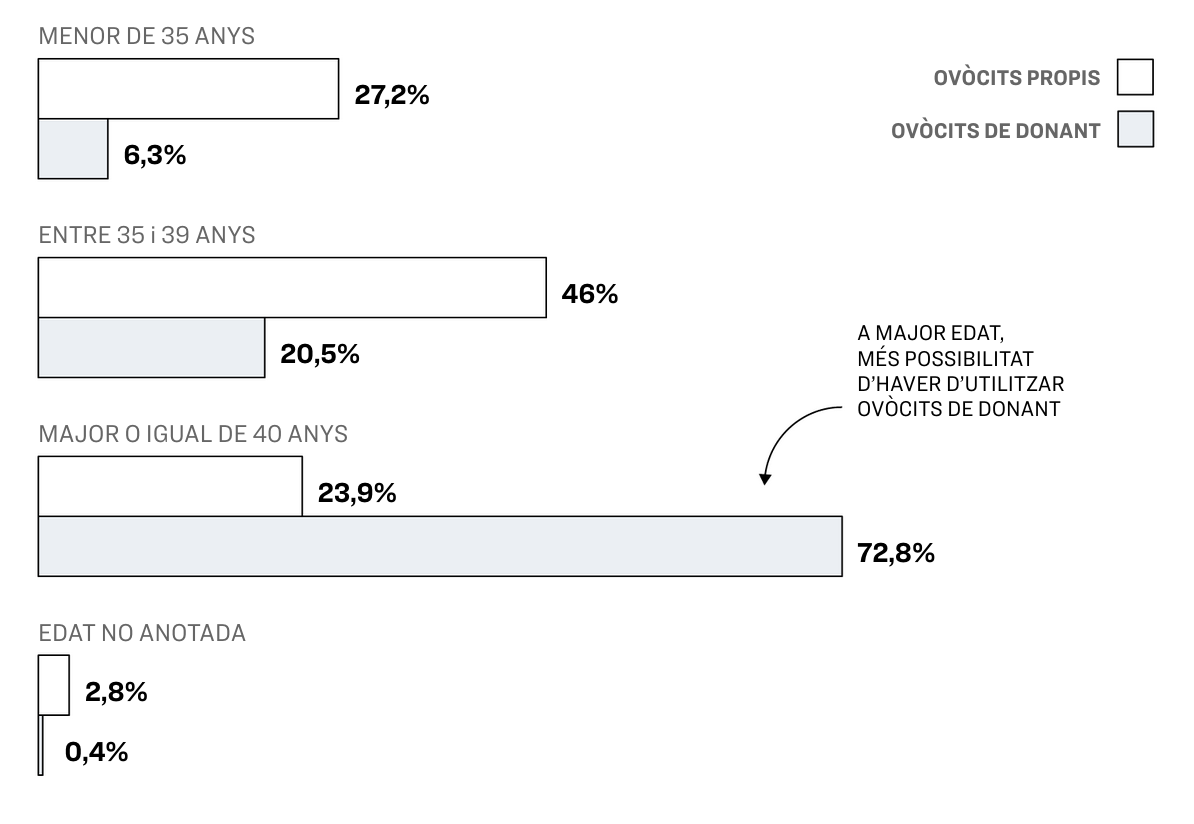
Ovodonation (with fresh oocytes)
ovòcits propis: own oocytes
ovòcits de donant: donor oocytes
menor de 35 anys: under 35 years of age
entre 35 i 39 anys: between 35 and 39 years old
major o igual de 40 anys: 40 years of age or over
a major edat, més possibilitat d’haver d’utilitzar ovòcits de donant: with age, the possibility of having to use donor oocytes increases
edat no anotada: age not noted
Source: SEF 2017
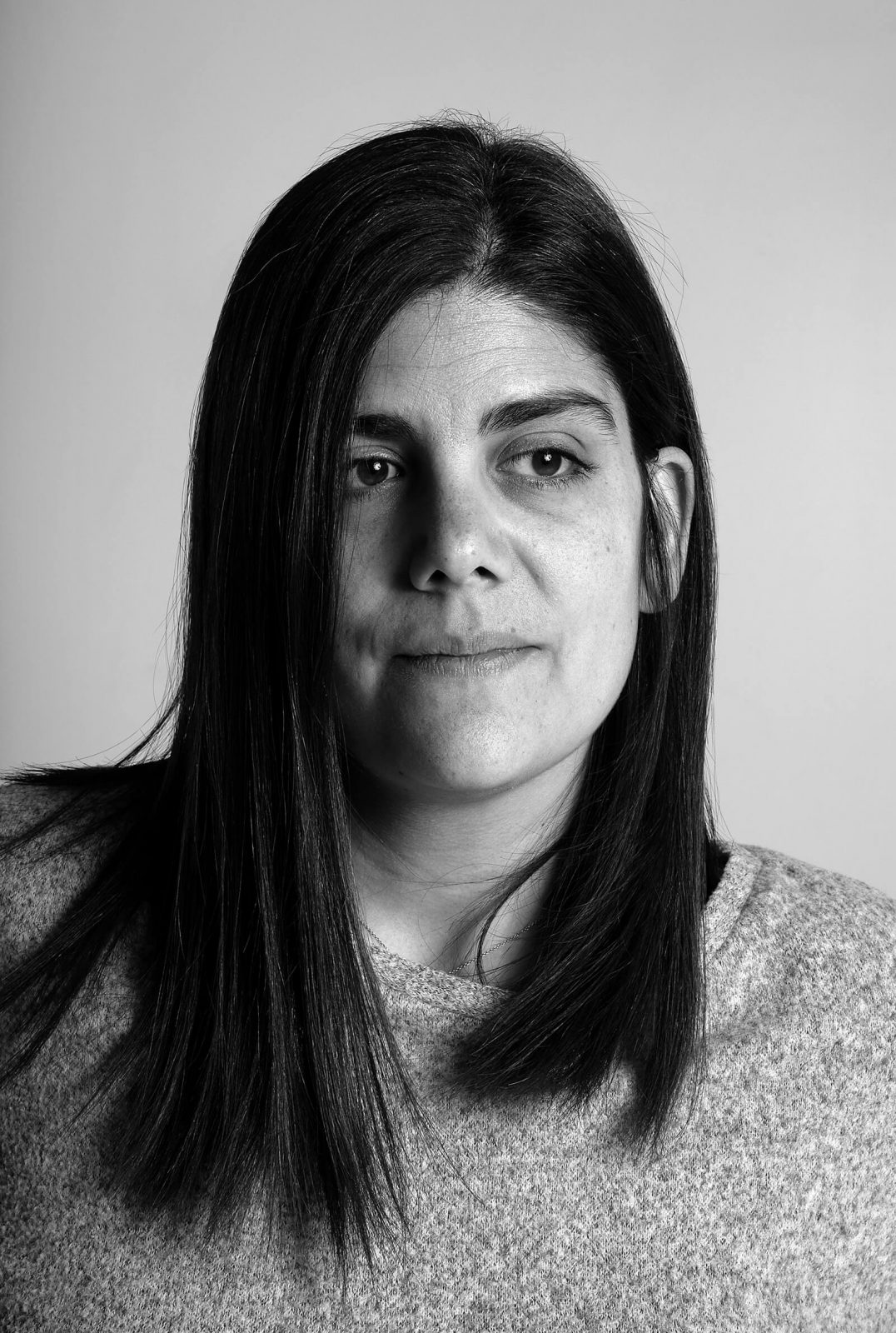
“I felt the need to find someone who would tell me: ‘What is happening to you happens to a lot of people.’”
Ariana Ruglio
36 years old
Clerical assistant
“I have felt really overwhelmed by motherhood, but also very abandoned because of my miscarriages, not having the space to talk. There is a huge taboo about women’s mental health. It’s like nothing should affect you, that you have to forget and move on.”
She had always wanted to be a mother. But her first pregnancy was not what she had imagined, nor was motherhood the fairy tale she had been told. Hers is a secondary infertility. Her first daughter was born at 41 weeks gestation after a long and heavy but normal pregnancy. The problems came later, when they were trying for a second child. Pol and Gala’s pregnancies ended abruptly at 13 and 16 weeks gestation. Tests revealed that Ariana was suffering from an immune disorder, which is what could be causing her pregnancies to fail. With treatment, there was a chance of trying again, but Ariana and her husband decided to stop and accept that theirs was an unusual large family. “We decided that that was it. I wasn’t willing to go through that a third time. There might be a solution to my infertility problem, but I decided not to accept it. This is something people don’t understand. It makes you look selfish not wanting to give your daughter a sibling. My daughter already has two siblings but they are not there. Ours is a different family.” From her Instagram account, Temps de dol [Time of Mourning.], she gives visibility to the various forms of maternity that are not explained, especially peri-natal grief. “For me, infertility is motherhood. The death of a child in the womb is part of motherhood, the death of your child at birth is a part of motherhood and terminating a pregnancy is also part of motherhood.”
10. What has helped me
Ariana “I opened an Instagram account to tell the story, like a diary. I felt the need to find someone to tell me: ‘What is happening to you happens to many of us, you’re not exaggerating’. And I started to write. I also sought psychological help because I realised that I wasn’t going to be able to get out of it alone and both things helped me a lot not to feel like a freak.”
Sandra Arolas “The people closest to us have seen us through and have not questioned us: ‘If you are well and you think you have to do it, go ahead’. And it’s good to have people to see it through with you because it’s not easy.”
Míriam “The worst of it is over. Now I feel good. I feel like a mother because I have had four pregnancies that would have been four children. There are many things that have helped me feel good. First of all, myself. I have fought hard to be like this now. And then the fact that I found the women’s support group: finally someone who understands me.”
1 out of 4 pregnancies ends in miscarriage
Ona and Edu O: “Talking about it helps me to come to terms with it, to take the heat off it and not get angry with life. And it has helped me to talk to other women who have gone through similar things.”
E: “We have it all out in the open and even make jokes about our situation because that makes us feel better. Everyone has to find their own way.”
Sandra Albert “It wasn’t talked about in my milieu. I explained to my mother that I was going to go through with the first treatment but then I didn’t tell her. Because if you don’t talk about it, the problem doesn’t exist. And also to avoid pressure and questions like: “What, how did it go? OK this time?”
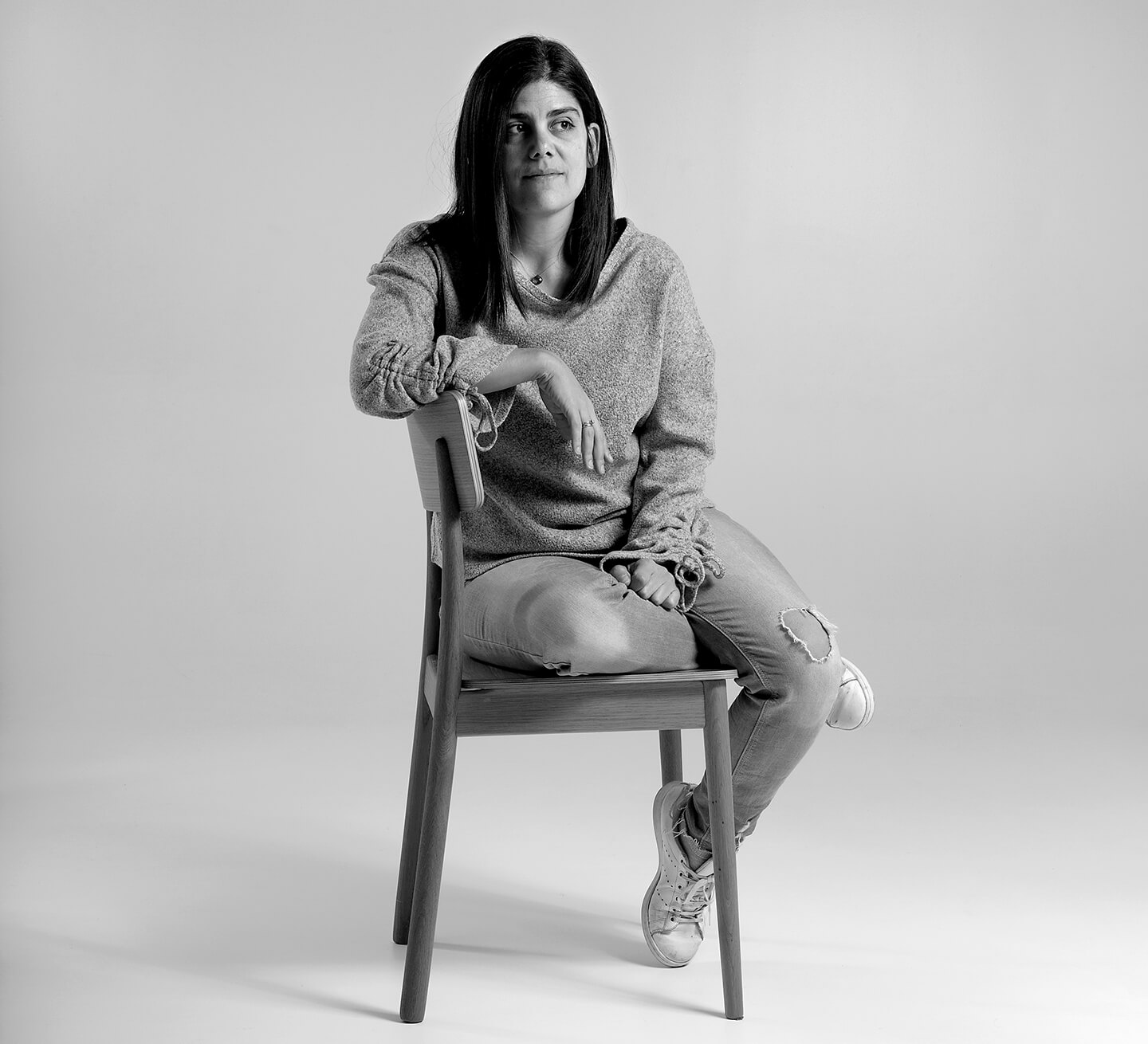
11. Acceptance, a life without children
Sandra Albert “When the last IVF didn’t work either, it was time to rethink my life because I was very sad. And I said to myself: ‘Either you look for something to look forward to in life or you will be bitter”. Now I am coping better, but for a long time I’ve been in a vacuum. It’s been a few years now and I’ve had time to digest it. At my age, it’s a closed chapter. I’m very well like this, it’s been hard for me to find a balance but now I’m fine. I have grown personally.”
Glòria “I’m no longer in pain, I’ve overcome it. As you talk, you become empowered. This is not a label for life. This has happened to me, but other things have also happened to me.”
“When children don’t come, everything is a bit shaky, your values, your legacy…. And I think about ageing. I think people without children think more about this than people with children because they assume that they will take care of them.”
Míriam “I thought I needed to be a mother. I remember thinking about a girl who couldn’t have children: ‘I would die if that happened to me’. And you see? Now I know that you don’t die because you don’t have children. It should be normalised that women can be just as happy having children as not having them. We have to put an end to this social pressure. And educate people so that they don’t ask harmful questions. And we must also stop taking it for granted that IVF is synonymous with having children.”
Ona and Edu E: “Obviously, we have to plan for not having children, but it would be a bit of a pretence, because we want to be parents. But if we can’t, we can’t, we’ll have to look for other ways. What we can’t do is follow a possibility that isn’t there, because that leads to unhappiness. What might frustrate me most is not making my parents grandparents, that might be hard for me to accept.”
Míriam “All this explaining that I do is also for the women who are going through it or who will go through it. So that they don’t feel the way I felt: alone. And I think of my niece, so that when she grows up she doesn’t feel pressured into having children if she doesn’t want to, or if she can’t, so that she has the tools and information that I didn’t have.”






